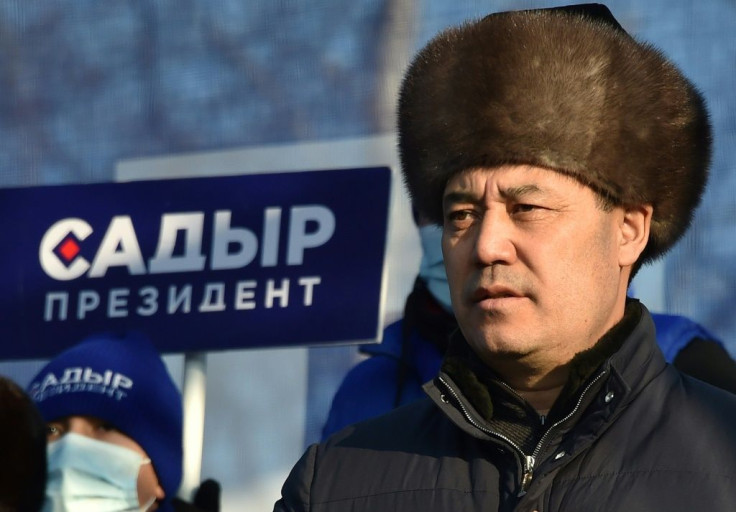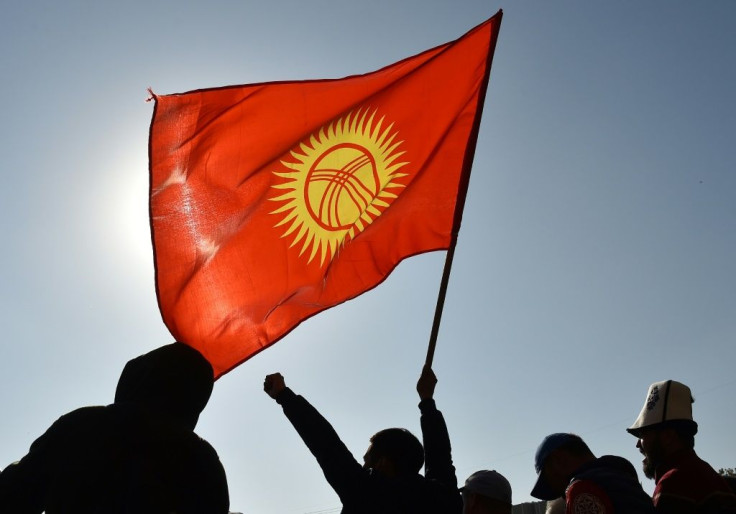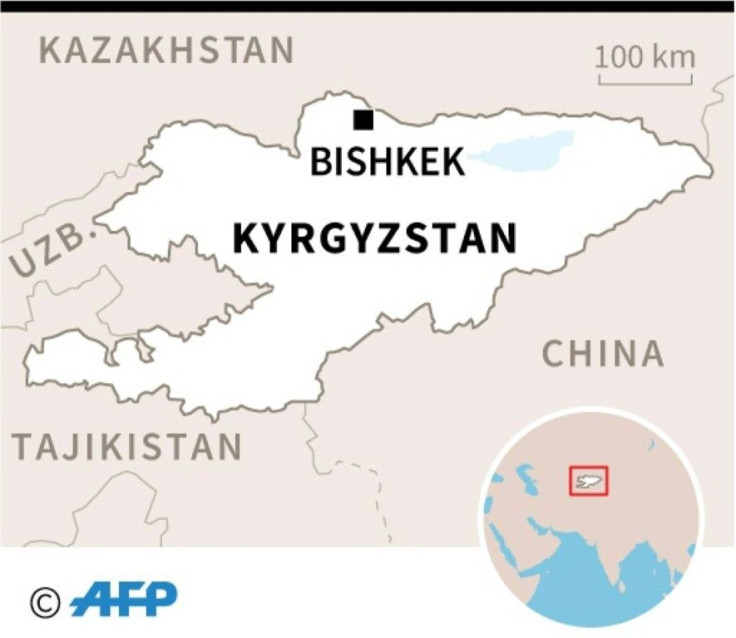Populist Poised To Win Kyrgyz Presidency
Kyrgyzstan holds presidential elections Sunday, with a populist politician who has served jail time for hostage-taking widely tipped to top the ballot.
Sadyr Japarov's anticipated journey from prison to the presidency is an example of the dramatic changes in fortunes that politicians can enjoy in a Central Asian country that is both more volatile and more pluralistic than its staid, authoritarian neighbours.
But critics of the combative Japarov, who became acting leader during a political crisis last year before quitting to run in the vote, fear his victory could tip Kyrgyzstan towards the strongman rule dominant in the ex-Soviet region.
A survey conducted in December by the Central Asia Barometer, a Bishkek-based research group, found that 64 percent of respondents intended to vote for Japarov, while only three percent said they would vote for Adakhan Madumarov, a nationalist who is considered his closest challenger.
In the capital Bishkek, where cold winters usher in a thick blanket of smog courtesy of local heating and ageing transport, many voters said they intended to back Japarov at the ballot box.

Zamira Ismanova, a 36-year-old candy floss saleswoman and mother of five, called the former lawmaker "a true son of the people" and said that she trusts him "100 percent".
In addition to choosing a new leader on Sunday, Kyrgyz are choosing between parliamentary and presidential forms of government, with Japarov backing greater powers for the post he is seeking.
Despite her support for the 52-year-old's candidacy, Ismanova -- who lives in rented accommodation and earns 500 soms ($6, 4.90 euros) a day -- said she was "tired" of overly powerful presidents.
"I will probably choose the parliamentary (form)," she told AFP.

Japarov, who was sprung from jail by supporters during the crisis before a court overturned his conviction, has styled himself as an uncompromising opponent of organised crime and systemic corruption.
He has poured scorn on critics, some of whom have speculated that criminal networks may have helped propel him to power.
In a Tuesday Facebook post Japarov promised to "teach" activists who have held demonstrations against his constitution drive to "reckon with the people".
With a threadbare economy battered by the coronavirus pandemic, Kyrgyzstan's next leader is likely to be even more dependent on goodwill from allies Russia -- a destination for hundreds of thousands of Kyrgyz migrants -- as well as neighbouring economic giant China.

During his end of year press conference, Russian President Vladimir Putin described the overthrow of the previous government as a "misfortune" in October and chided Kyrgyz politicians for attempting to imitate Western democracies.
Beijing's ambassador met with Kyrgyz officials several times last year to discuss protection for Chinese businesses, some of which were attacked during the chaos.
Elections in Kyrgyzstan differ from those held in neighbouring countries, due to the presence of government opponents on the ballot.
Oil-rich Kazakhstan will also hold a poll on Sunday with none of the competing parties identifying as opposition.
Elections in the poorer "stan", a mountainous country of 6.5 million, have rarely offered an even playing field, however.
The crisis that allowed for Japarov's overnight rehabilitation and rise to power was sparked by vote-buying campaigns favouring parties close to former president Sooronbay Jeenbekov.
Electoral authorities cancelled the election results but the move failed to quell unrest.
Jeenbekov resigned less than two weeks later at the insistence of Japarov's supporters and after agreeing to sign off on Japarov's election as prime minister by parliament.
It was the third time a Kyrgyz head of state has stepped down over street protests since independence in 1991.
While constitutional requirements moved Japarov to abandon his posts in order to compete in Sunday's election, rivals have complained that his campaign has benefited from the resources of the state, where his allies now occupy top posts.
Bekjol Nurmatov, a 77-year-old retiree, accused Japarov of "plunging the people into chaos" last year and complained that his campaign was using "administrative resources" to win votes in the Osh region from which Nurmatov hails.
Nurmatov noted that Japarov failed to show up for the first round of televised debates between candidates. He said he intended to vote on Sunday for Japarov's main rival Madumarov, also from the Osh region.
"Madumarov is a worthy candidate, Nurmatov said. "(Japarov) is hiding from the people."
© Copyright AFP 2024. All rights reserved.





















